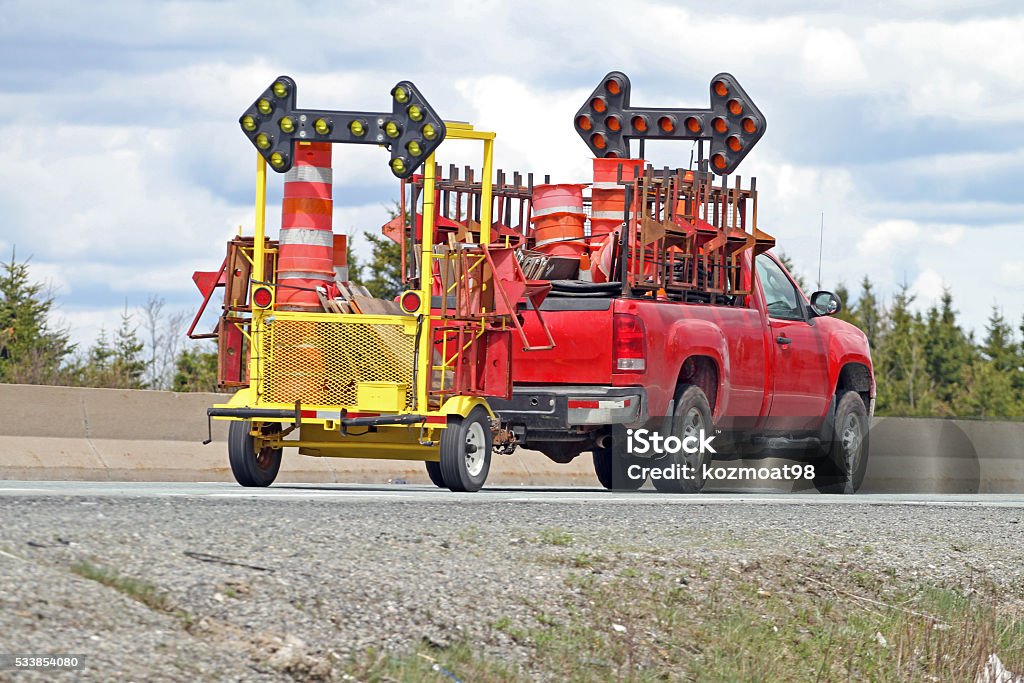Traffic control trucks are integral to maintaining safety and order on roads. They are equipped with specialized tools, such as crash attenuators, arrow boards, and warning lights, to ensure work zones are protected and traffic is managed efficiently. These vehicles, often operating under demanding conditions, require regular maintenance to perform their functions effectively.
Neglecting upkeep can lead to equipment failure, increased costs, and safety hazards. This article explores the importance of maintaining traffic control trucks and provides a comprehensive understanding of why regular servicing is vital for safety, efficiency, and longevity.
The Importance of Traffic Control Trucks in Modern Infrastructure
Traffic control trucks are not just vehicles; they are mobile safety systems. Their role extends beyond transportation to include:
- Road Safety Management: Guiding vehicles through hazardous zones like construction sites and accident areas.
- Worker Protection: Acting as a barrier between live traffic and on-site workers.
- Emergency Response: Providing quick and efficient traffic management during emergencies like road closures or natural disasters.
Given their critical role, the reliability of these trucks is non-negotiable. Maintenance ensures they are always ready to perform in demanding environments.
Key Components That Require Regular Maintenance
Traffic control trucks consist of various mechanical and electronic components. Here are the essential parts that need regular attention:
1. Crash Attenuators
Crash attenuators absorb impact in case of a collision. Regular checks are necessary to ensure they can withstand forces during an accident. Damaged attenuators compromise safety and can lead to severe consequences.
2. Lighting Systems
Arrow boards, strobe lights, and warning signals are crucial for visibility, especially at night or in poor weather conditions. Routine inspections ensure these systems remain functional.
3. Hydraulic Systems
Hydraulics power lifting mechanisms and other moving parts. Leaks, worn-out seals, or low fluid levels can lead to operational inefficiencies.
4. Tires and Brakes
Traffic control trucks often operate in diverse terrains. Maintaining tires and brakes ensures stability, better handling, and reduced risk of accidents.
5. Engine and Transmission
A reliable engine is the backbone of any vehicle. Regular oil changes, filter replacements, and diagnostics help prevent breakdowns.
6. Electrical Systems
From dashboard indicators to communication devices, electrical systems require consistent monitoring to avoid malfunctions.
Benefits of Regular Maintenance
1. Enhanced Safety
Properly maintained traffic control truck significantly reduce the risk of accidents. Functional crash attenuators and lighting systems safeguard both workers and road users.
2. Increased Equipment Longevity
Routine servicing extends the lifespan of trucks and their components. Preventive maintenance reduces wear and tear, saving you from frequent replacements.
3. Cost Efficiency
While maintenance involves upfront costs, it prevents expensive repairs and downtime. A well-maintained fleet operates more efficiently, lowering fuel consumption and overall expenses.
4. Compliance with Regulations
Traffic management vehicles must meet safety standards and regulations. Regular maintenance ensures your fleet stays compliant, avoiding fines and legal complications.
5. Minimized Downtime
Unexpected breakdowns can halt operations, leading to delays and revenue loss. Scheduled maintenance minimizes the likelihood of such disruptions.
Risks of Neglecting Maintenance
Failing to maintain traffic control trucks can have serious consequences, including:
- Increased Accident Risk: Malfunctioning equipment can lead to road mishaps and injuries.
- Higher Costs: Neglect leads to expensive repairs and component replacements.
- Reputation Damage: Poorly maintained trucks reflect negatively on your business, eroding client trust.
- Non-Compliance: Ignoring upkeep can result in violations of safety standards, legal penalties, and operational shutdowns.
Best Practices for Maintaining Traffic Control Trucks
1. Develop a Maintenance Schedule
Create a maintenance plan tailored to your fleet’s needs. Include daily checks, monthly inspections, and annual servicing to cover all bases.
2. Perform Pre-Operation Checks
Before deploying a truck, ensure components like lights, tires, and crash attenuators are in optimal condition.
3. Train Your Team
Equip your team with the knowledge to identify early warning signs of wear and tear. Basic training can prevent minor issues from escalating.
4. Use Genuine Parts
When replacing components, opt for original parts to ensure compatibility and durability.
5. Document All Maintenance Activities
Maintain a log of repairs, inspections, and part replacements. This documentation helps track the health of each vehicle and plan future servicing.
How INNOV8 Equipment Supports Fleet Maintenance
At INNOV8 Equipment, we understand the challenges of maintaining traffic control trucks. Our commitment to quality and safety ensures that your fleet remains operational and reliable. Here’s how we assist:
1. Premium Equipment
We provide top-of-the-line traffic control trucks designed for durability and performance.
2. Comprehensive Maintenance Services
Our team of experts offers scheduled servicing, diagnostics, and repairs to keep your vehicles in peak condition.
3. Training and Support
INNOV8 Equipment conducts training sessions to empower your team with maintenance best practices.
4. Genuine Spare Parts
We stock high-quality replacement parts to ensure seamless repairs.
5. Tailored Solutions
Every fleet has unique requirements. We customize our maintenance plans to suit your operational needs.
Case Studies: The Impact of Regular Maintenance
Case Study 1: Preventing Costly Downtime
A construction company in Dubai faced frequent delays due to poorly maintained trucks. Partnering with INNOV8 Equipment for routine maintenance eliminated unexpected breakdowns, boosting their productivity by 30%.
Case Study 2: Enhancing Safety Standards
A traffic management firm upgraded their maintenance practices with INNOV8 Equipment’s support. The result? A 40% reduction in on-road incidents and higher client satisfaction.
Conclusion
Regular maintenance is not an option for traffic control trucks—it’s a necessity. From ensuring safety and compliance to reducing costs and extending equipment lifespan, the benefits are undeniable.
At INNOV8 Equipment, we specialize in providing robust solutions for traffic control trucks, including premium vehicles, reliable maintenance services, and expert support. Partner with us to keep your fleet road-ready and ensure seamless operations in the demanding traffic management industry.

